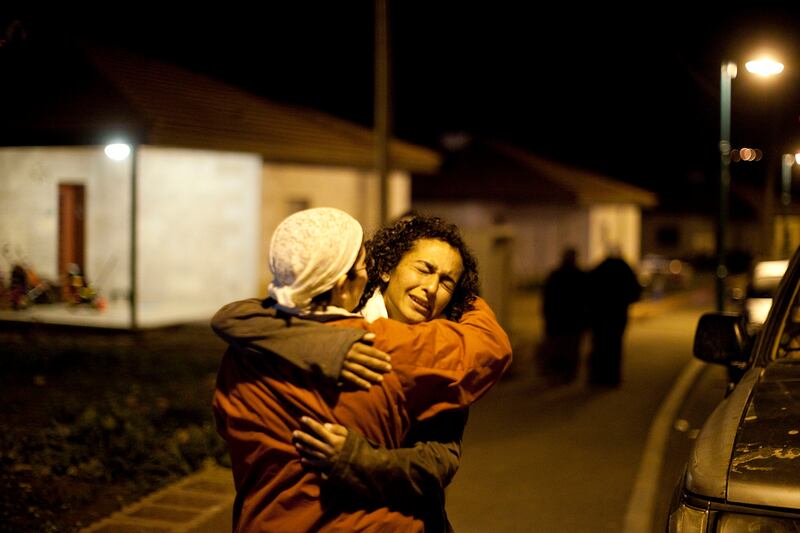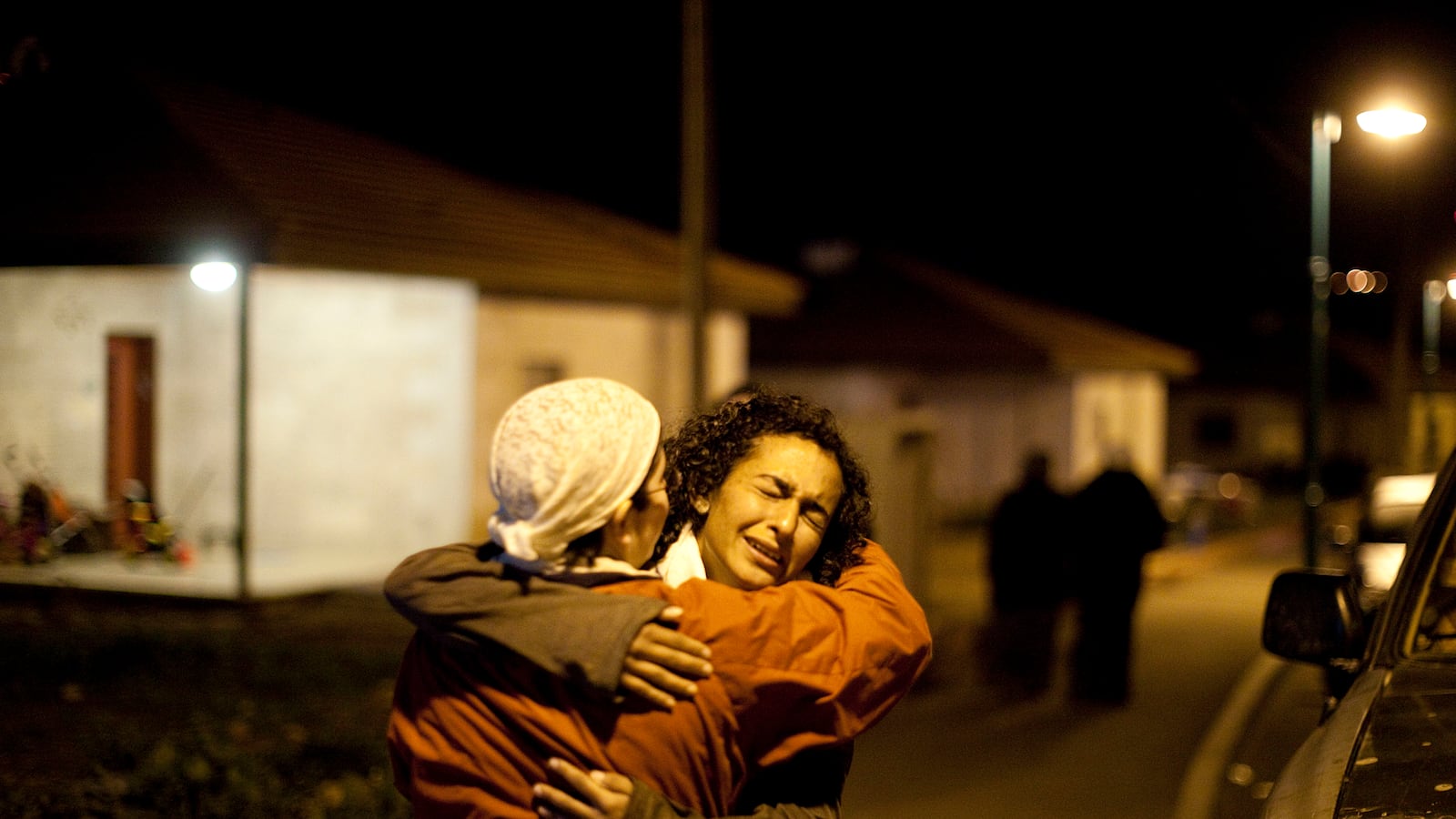With attacks increasing against Israeli and Palestinian civilians, leaders from both sides must take dramatic action to curb this recent wave of terrorism. Otherwise the tenuous calm that has remained in the region during the past few years may evaporate.
Three cars were set ablaze in the West Bank village of Burqa and a mosque was defaced three weeks ago in a suspected “price tag” attack. “Price tag” attacks refer to extreme right-wing Jewish violence against Palestinian and other targets in response to perceived unfavorable actions by the Israeli government or Palestinian leaders. This was not even the only “price tag” attack to occur on October 9. The Jerusalem Post reported that Jewish terrorists launched an attack against the Palestinian village of Jalud, vandalizing an elementary school and even injuring an Israeli soldier. During the past year, over 150 “price tag” attacks have been recorded with targets including Christian cemeteries, Palestinian school buses, and Israeli cars. At the scene, Jewish terrorists have written “get out or else” on Arab vehicles and “Jesus is a monkey” at Christian holy sites.

In a recent solidarity visit to one of the sites of a “price tag” attack in Abu Ghosh, Israeli President Shimon Peres said, “I come in the name of the people of Israel to not only condemn this act of terror, but to praise the people of Abu Ghosh for the pride they bring in Israel.” Speaking to the Israeli Police Head General Yohanah Danino, Peres asked him to strengthen efforts to catch those behind the attack. While some Jews may wince at the term terrorism being referred to actions by Jews, there is no better word to describe the act of burning mosques, churches, and schools with the intention to intimidate than terrorism.
Unfortunately, for political reasons the Security Cabinet and Prime Minister Benjamin Netanyahu has refused to label the Jewish attackers as terrorists instead classifying them as members of an “illegal association.” Haaretz’s Barack Ravid wrote that labeling these attackers as terrorists could have sparked a coalition crisis with the right-wing Jewish Home Party and other settlers.
Member of Knesset Esawi Frej criticized the decision asking, “Equality before the law? But we should declare price-tag terrorists as an unsympathetic youth movement.” Frej continued, saying, “when an Arab child throws a stone against a Jew, he is declared a terrorist and taken away for questioning in the middle of the night. What is true for Ahmed has to be true for Moshe.” The Israeli Cabinet decision is not only symbolically important, but also decides what type of law authorities can use in hunting down the suspected perpetrators. Furthermore, while the Israeli security forces are often vigilant when handling an Arab terrorist accused of killing Jews, in this scenario they are citing difficulties in tracking down the suspects. In a poll conducted by Israeli television channel 10, nearly 60 percent of respondents agreed that the government “didn’t really want to catch” price-tag assailants.
Similar to the rise in Jewish violence, Palestinian terrorism has also recently been on the rise. Palestinians carrying iron bars and axes brutally killed an Israeli man outside his home earlier this month, and wounded the man’s girlfriend in the attack. One week prior, a 9-year-old Israeli girl was shot in a suspected Palestinian attack and two other Israeli soldiers were murdered in the West Bank. The larger question with these attacks is the role of Palestinian President Mahmoud Abbas. Either he is not able to control the rogue elements within the West Bank—which forces one to rethink whether he will be able to enforce a final status agreement with Israel—or he is playing a passive role in the fight against rising Palestinian terrorism in the West Bank. The latter suggests he is not truly committed to the peace process. Both options are troublesome.
In addition to the violence originating from the West Bank, acts of terror continue from the Gaza Strip. Palestinian militants have continued to launch dozens of rockets at Israeli population centers in the area during the past few months. Furthermore, Israeli forces have recently uncovered a massive tunnel designed to attack Israel. In a Facebook post, Moussa Abu Marzouk, deputy head of Hamas’ political bureau, praised the construction of the tunnels into Israel designed to kidnap additional Israeli soldiers. Hamas is playing an active role in trying to torpedo the peace process.
With direct negotiations continuing between Israeli and Palestinian leaders for the past few months, and relatively few leaks regarding the substance of the talks, in abiding by U.S. Secretary of State John Kerry’s order, some are hopeful regarding these talks’ chances of success. Nonetheless, if security forces—both Israeli and Palestinian—do not respond more seriously to this grave escalation of terrorism, than all of the progress in the negotiating room could be wiped out by violence on the street.





